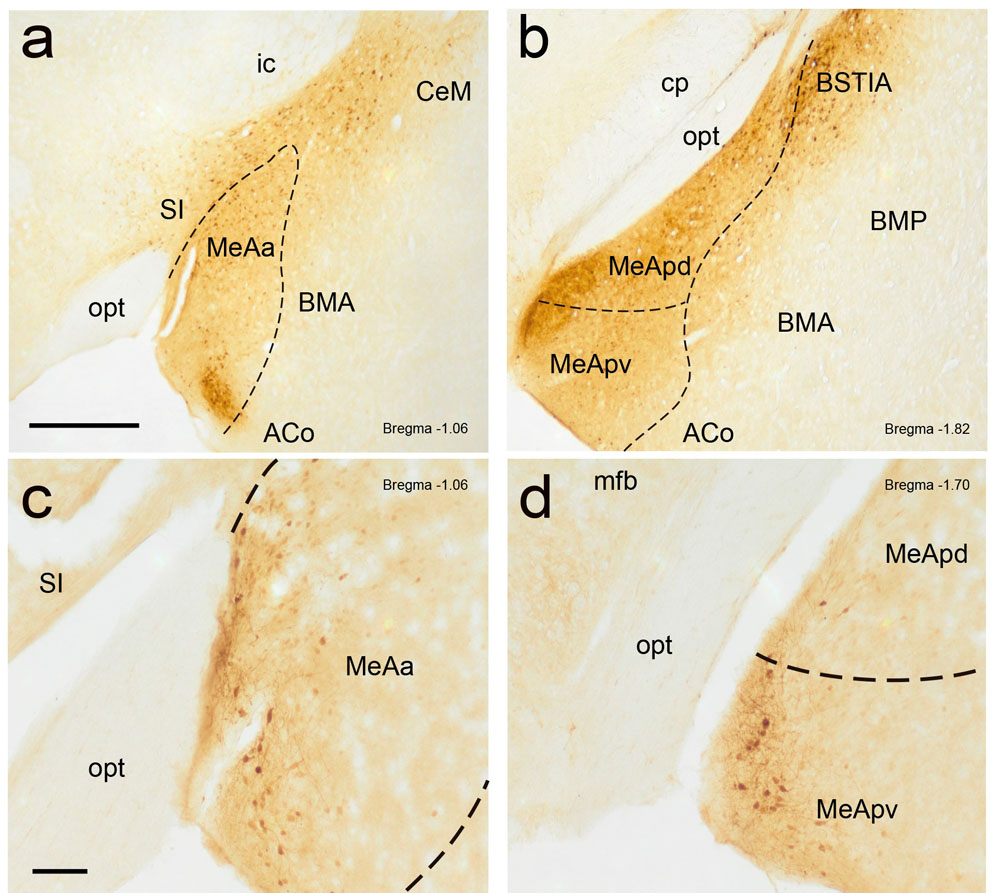Research shows that turning off a brain region decreases aggressiveness in lactating female mice
- Scientific Culture and Innovation Unit
- September 21st, 2022

A research team from the Universities of Valencia and Jaume I of Castellón has managed to show that if the medial amygdala – a part of the brain that detects pheromones and participates in social behaviour – is inactivated in mice, lactating females are no more aggressive the second time they must face a male, as it happens in unmanipulated females. The technique used, called chemogenetics, makes it possible to reversibly inactivate specific brain regions.
This research is a further step in understanding the brain circuits that control aggressive responses, especially those that are increased and that can occur in other violent behaviours. The work has been published in the journal Communications Biology, of the Nature group.
Maternal aggressive behaviour is a behaviour that many mammalian mothers present to defend their young in the first days of life, not only from predators but also from males of the same species, who can be infanticides. In this study, as Carmen Agustín, a researcher at the Department of Cellular Biology, Functional Biology and Physical Anthropology at the University of Valencia, explains, “it has been shown that mice mothers become more and more aggressive against foreign males when they are put in cages on consecutive days, and they attack them for a longer time as they have more experience, which is called escalated aggression”.
In previous work, this team has already shown that maternal aggression against males depends on females detecting a male pheromone found in the urine of adult males, called darcin. Pheromones are chemical substances that animals generate and spread in the environment, which induce certain behaviours or physiological reactions in other individuals of the same species. Among others, they can cause behaviours such as attraction, disgust or aggression.
The research team explains that in previous works they had already shown that virgin females that accompany the mothers and their young pups help the mothers to take care of them. That is, they exhibit maternal behaviour, but they do not develop aggression, not even, as shown in the recently published work, with repeated experience with males. Therefore, while maternal care can be developed only through contact with the young pups, maternal aggression would require the hormonal changes of pregnancy and lactation.
Researcher María Abellán has also participated in the research as the first signatory of the work as well as Professor Enrique Lanuza, from the Department of Cellular Biology; and Fernando Martínez García, researcher of the Joint Functional Neuroanatomy Research Unit of the Predepartmental Unit of Medicine of the Jaume I University of Castellón.
This research was presented at Naukas Bilbao, one of the most massive scientific outreach events in Spain.
Article: Abellán-Álvaro, M., Martínez-García, F., Lanuza, E. et al. « Inhibition of the medial amygdala disrupts escalated aggression in lactating female mice after repeated exposure to male intruders». CommunBiol 5, 980 (2022). https://doi.org/10.1038/s42003-022-03928-2
Photo caption:
Photomicrograph of the medial amygdala, a brain structure involved in increased aggressiveness in lactating females.



















